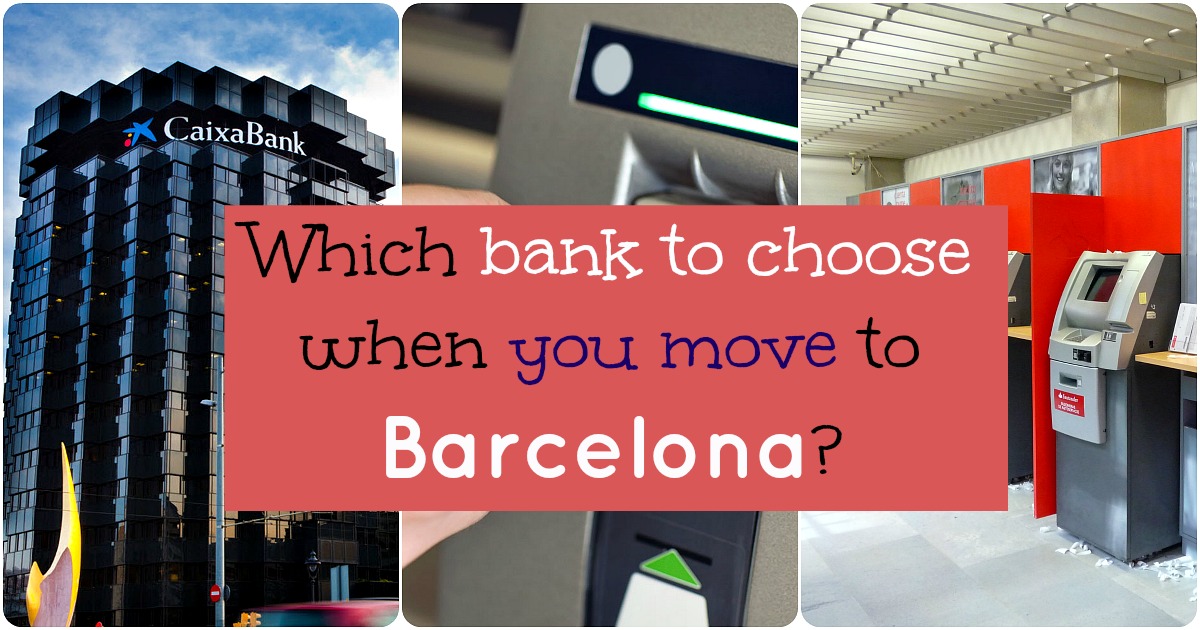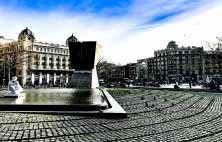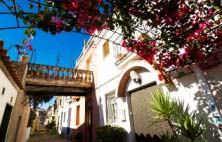Resident or non-resident bank account?
Above all you could simply use your current bank card and account to pay and withdraw money. Depending on your bank and the bank used to withdraw money, you might have to pay some fees. This will also apply when transferring money online to another bank. But once you obtain residency it is beneficial to switch to a Spanish bank account. However some Spanish banks offers bank accounts for non-residents as well.
Non-residential bank account
The NIE is an essential document to be a legal resident in Spain. In general if you want a 'proper' bank account you will need an NIE, but to get you started in Barcelona you can open a non-residential one until you get off your feet.
If you want to know more about the NIE and follow our step by step plan on how to obtain your NIE, then check out the article below.
If you come to visit the capital of Catalonia, we will help you to find the best monthly rentals in barcelona. We offer apartments of different types, renovated and well furnished in all areas of Barcelona!
-
 How to get your NIE in Spain How to emerge victorious in the quest for a NIE in Barcelona
How to get your NIE in Spain How to emerge victorious in the quest for a NIE in Barcelona
There are some banks that offer non-resident current accounts on the basis that you provide them with another form of documentation, such as a passport. For this privilege, these accounts cost extra money, which is why they are considered to be a temporary solution until you can get a residential current account.
Banks that offer non-residential accounts include Banco Santander, La Caixa, and Banco Popular. If you are a business, you could open a non-resident account with Banco Sabadell (available in English).
Most of these banks are content with one form of identification like a passport. Take a look at the official websites of the banks and ensure you have the correct documentation for your needs.
Attention! Once you get your NIE, it would be a good idea to notify your bank and switch to a residential bank account.
Residential bank account
As explained above, once you obtain your NIE you could opt for a residential bank account. Spain has a lot of big banks and we will examine some of them.
Excursions in Barcelona
To make the most of Barcelona and fill your trip with unforgettable experiences and emotions, we offer you the excursions through the Catalan capital organized by our friends - the GetYourGuide team. Choose your excursion and fall in love with Barcelona:
1. Sabadell
It is really easy to open up a bank account with Sabadell in Spain. Their website is available in English and they have 24 hours phone support. To open up a bank account with Sabadell you need to take your NIE and (a copy of) your labour contract with you. Their Cuenta Expansión (Expansion Account) is for young people between 18 and 25 years old and does not have any charges or obligation to deposit money.
2. Santander
Santander is one of the biggest banks in Spain. It is more difficult to set up a bank account at Santander than at Sabadell. The web page is only available in Spanish and Catalan. Moreover you need more documents. As well as your NIE or passport, you need proof of home address and of employment. However, bank transfers are free and the fees for withdrawing money from other ATMs are exceptionally low.
3. ING Bank
ING Bank operates worldwide so you might have heard of them before. The main advantage of ING Bank is that you are able to open a new bank account online. They have three offices in Barcelona as well if you need to see someone face to face. Next, there are no fees or charges. A disadvantage is the lack of an English speaking services. To open up a bank account at ING Bank you need a NIE, proof of employment and home address.
4. Evo Banco
If you are between 18 and 28 years old you can open a Cuenta Joven (Youth Account) without needing to deposit a minimum amount monthly, and without commissions or fees. You will also get a free debit card until you're 30. Be aware that you may be slightly limited with ATM access. You can only use EVO bank ATMs for free without limits, apart from that you can withdraw from any 4B system ATM twice each month for free. From the third withdrawal, the commission is €1. To open up a bank account with Evo Banco one should bring NIE, proof of residency, home address and employment. All documents should be translated to Spanish.
5. Open Bank
You can open a bank account without commissions or fees in addition to receiving a mastercard, again free to use on the 4B ATMs, which includes Santander bank ATMs. They say that there are no special conditions for this.
6. Triodos Bank
They call themselves an ethical bank, and while there are no commissions for setting up and using the account, there is a cost of €18 per year to use the biodegradable debit card.

Practical information
Required documents
The required documents to set up a bank account differs between a residential and non-residential bank account.
Residential bank account
To set up a residential bank account with any bank, you need at least an NIE and for almost all of them proof of employment and home address as well. Some go even further and request a proof of residency as well. If you have a ‘green’ NIE paper, you have both in one. This green paper is a ‘Certificado de registro de ciudadano de la unión’ and contains an NIE number. If you received your NIE on a white paper you should still get the proof of residency.
Non-residential bank account
For a non-residential bank account you might need a certificate of non-residency, a so-called Certificado de No Residente. You can get such a certificate at the police station. Just show them your passport and ask for the ‘Certificado de no Residente’. It could take up 10 days before you get your proof of non-residency. However, not every police station offers this service, so you might visit a few different ones before you get the right one. Some banks can provide the certificate of non-residency as well for a fee of around €15.
Fees
Most banks charge an annual fee for the administration of your current account. The fee lies between 15 and 30 euro. It is likely that you are charged extra for a credit card. If you withdraw money from other ATMs you could be asked to pay a fee as well. Those fees starts from 0.50 euro up to a maximum of 3 euro. Once withdrawing the money, the ATM will show you the fee and give you the option to continue or cancel the transaction.











